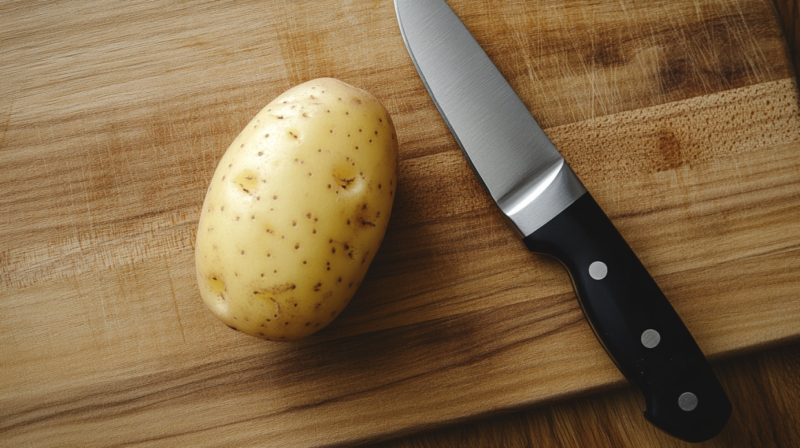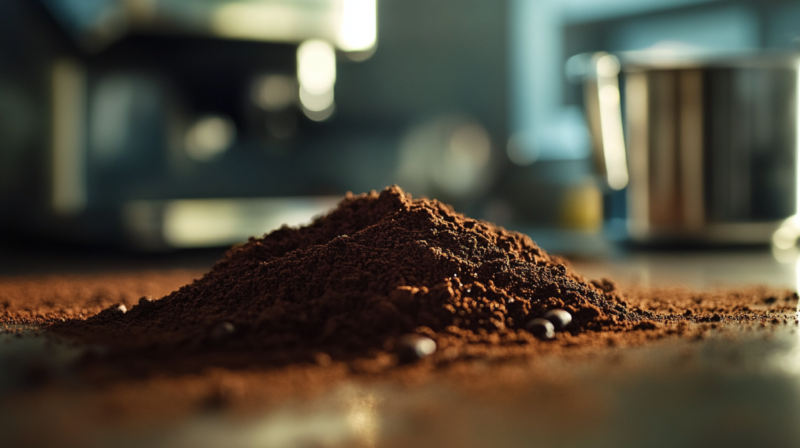Cooking fish might leave your kitchen smelling like a dockside market, but fear not—those stubborn odors can be kicked out faster than you can say “cod.” The secret?
A combo of quick fixes and clever hacks: simmer vinegar to neutralize the stench, scrub surfaces with baking soda paste, and let coffee grounds soak up lingering whiffs.
Done right, your kitchen will smell fresh again in no time.
Curious about the details, or some sneaky tricks most folks overlook?
Stick around.
Quick Fixes to Start Strong
Open windows wide the second fish hits the pan; airflow dilutes those rogue molecules fast.
Crank up the exhaust fan if you’ve got one—let it suck the stink straight out. No fan?
A portable one aimed outside works too. Timing matters here—ventilation during cooking cuts the battle in half.
Next, simmer a pot of vinegar. Pour a cup of white vinegar into a saucepan, add a splash of water, and let it bubble gently on the stove.
The acetic acid grabs TMA out of the air, neutralizing it into something far less offensive.
Ten minutes usually does the trick, though bigger fish feasts might need fifteen.
Wipe It Down Right Away
Don’t wait—grab a damp cloth sprinkled with baking soda and hit the hotspots: counters, stove, sink.
Baking soda’s alkaline nature cancels out acidic odor particles, scrubbing away grease while it’s at it.
Mix it into a paste with a dribble of water for extra oomph on stubborn spots.
Quick action stops the smell from sinking into porous surfaces like wood or tile grout.
Lesser-Known Hacks

Ever tried mustard powder? Sprinkle a teaspoon into a bowl of warm water, dip a sponge, and wipe down fish-touched surfaces.
Mustard’s sulfur compounds bind to TMA, lifting it away like magic. It’s subtle, effective, and leaves no tangy scent behind—just rinse well after.
Another gem: activated charcoal. Snag a few pieces (pet stores or aquarium sections stock it) and set them in a shallow dish near the stove.
Unlike baking soda, which neutralizes, charcoal absorbs odors like a sponge—think of it as a silent vacuum for smells.
Leave it out overnight, and by morning, the fishy edge dulls.
Toss it after a week or so; it’s dirt cheap to replace.
The Potato Trick

It might sound strange, but a raw potato can be your secret weapon against stubborn fishy smells on cutting boards, knives, and plates.
The starch in potatoes absorbs trimethylamine (TMA)—the compound responsible for that lingering seafood odor.
How to Use the Potato Trick
Why It Works
- Potatoes absorb odors thanks to their high starch content.
- No harsh chemicals are needed—completely natural.
- Works on various surfaces including wood, plastic, and stainless steel.
No Potato? Try This Instead
- Stale bread – Rub a chunk over the surface to soak up fishy residue.
- Salt and lemon – Sprinkle salt on the area and scrub with a lemon wedge for a fresh scent.
This old-school kitchen hack is easy, effective, and eco-friendly—so next time you cook fish, reach for a potato!
Absorbing Lingering Whiffs

Coffee grounds step up here—not the brewed stuff, but fresh, dry grounds.
Scoop a handful into a bowl and park it where the odor lingers—by the sink, maybe, or under the stove hood.
Coffee’s porous structure traps TMA molecules overnight. Swap it out daily until the air clears; used grounds lack the same punch.
Charcoal briquettes (unscented, no lighter fluid) pull a similar stunt. Line a few in an old tray and tuck it out of sight—say, behind the fridge.
They’ll quietly siphon off fishy traces for days. Got a fabric softener sheet?
Drape one over a vent or fan blade; it catches odors as air moves through, adding a faint, clean scent.
Vinegar’s ace, but cinnamon sticks or cloves offer a warmer vibe.
Toss a stick or a teaspoon of cloves into boiling water, let it simmer, and watch the kitchen shift from fishy to cozy.
The aromatic oils don’t neutralize TMA—they mask it, overpowering the funk with something pleasant. It’s a mood-lifter too, especially after a messy fish fry.
Deep-Cleaning the Culprits
This Is the Best Way to Get Rid of Any Stubborn Fish Smells in Your House https://t.co/MnRaddIvR8
— Apartment Therapy (@AptTherapy) September 13, 2024
That wooden cutting board? Fish oils seep in, stinking it up for days. Sprinkle coarse salt over it, squeeze half a lemon, and scrub with the rind.
The salt scours, the acid cuts grease, and the citrus zaps odors. Rinse, air-dry, and it’s reborn. Plastic boards take the same treatment—just skip the salt if scratches worry you.
Pans and dishes need love too. Fill them with hot water, a squirt of dish soap, and a tablespoon of dry rice.
Swirl it around—the rice acts like gentle grit, lifting fishy residue off metal or ceramic.
Dump, rinse, and dry. It beats soaking overnight, and the rice trick’s a quiet hero for stuck-on smells.
Fabric Fixers
Curtains, aprons, and dish towels tend to trap stubborn kitchen odors, especially after handling fish or strong-smelling foods.
Instead of washing them constantly, try this quick and easy deodorizing trick.
How to Refresh Fabrics Instantly
- Mix equal parts water and vodka (any cheap vodka works).
- Pour into a spray bottle and lightly mist curtains, aprons, or towels.
- Let it air dry—the alcohol evaporates quickly, carrying odors away with it.
Why This Works
- Alcohol breaks down odor molecules like TMA (responsible for fishy smells).
- No washing required, perfect for in-between laundry days.
- Safe for most fabrics—but test on delicate materials first.
For Bigger Items
- Hang them outside in sunlight—UV rays naturally break down odor compounds.
- For deep-set smells, sprinkle baking soda over fabrics, let sit for an hour, then shake it out.
This effortless hack keeps kitchen fabrics fresh without extra laundry!
When All Else Fails
View this post on Instagram
Stubborn smells call for heavy hitters. Boil a cup of water with a tablespoon of hydrogen peroxide (3% kind, from the drugstore).
The steam oxidizes odor molecules, breaking them into odorless bits.
Keep it short—five minutes max—and ventilate; it’s strong stuff. Or try an ozone generator if you’ve got one—ten minutes in a closed kitchen zaps fishy traces, but air it out after.
Last resort? Slice an onion and let it sit out overnight. It’s not pretty, but onions absorb TMA like champs—better a faint onion whiff than fish funk.
Toss it in the morning; problem solved.
Wrapping It Up
@purewow What other air-freshening hacks should we try? #hacks #kitchensmells #howtogetridoffishsmell #kitchenhacks ♬ original sound – PureWow
Fish doesn’t have to haunt your kitchen. Hit it fast with vinegar and baking soda, lean on quirky fixes like mustard or potatoes, and soak up leftovers with coffee or charcoal.
Prevention’s your ace—milk coatings and quick cleanup dodge the worst.
Mix and match these tips; every kitchen’s a little different. The payoff? A space that smells clean, not like a fishing pier.
Next time you cook salmon or trout, you’ll breeze through the aftermath—fresh air, happy nose, no drama.

